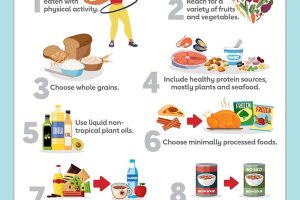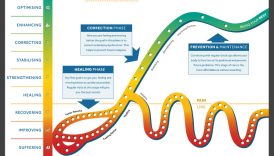10 Heart-Healthy Habits You Need to Start Today

In today’s fast-paced world, prioritizing heart health can often take a backseat to daily responsibilities. However, understanding the importance of maintaining a healthy heart is crucial for overall well-being.
- 10 Heart-Healthy Habits You Need to Start Today
- Why Heart Health Matters
- Understanding Heart Health
- The Basics of Heart Function
- Importance of Regular Exercise
- Types of Cardiovascular Exercises
- Healthy Eating Habits
- Benefits of a Balanced Diet
- Stress Management Techniques
- Meditation and Relaxation
- Importance of Regular Sleep
- The Heart and Sleep Connection
- Quitting Smoking for a Healthier Heart
- The Heart-Healthy Benefits of Quitting Smoking
- Limiting Alcohol Consumption
- Understanding the Risks of Excessive Drinking
- Maintaining a Healthy Weight
- Tips for Weight Management
- Regular Health Check-ups
- The Importance of Consistent Check-ups
- Incorporating Superfoods in Your Diet
- What Are Superfoods?
- XII. Tips for Reducing Salt Intake
- Simple Strategies to Cut Down on Salt
- XIII. Benefits of Hydration
- Why Hydration Matters for Heart Health
- XIV. Importance of Social Connections for Heart Health
- The Heart-Healthy Impact of Relationships
- XV. Conclusion
- Key Takeaways for Heart Health
Why Heart Health Matters
Heart health isn’t just a topic for people with pre-existing conditions; it affects everyone. A personal story illustrates this:
- Consider Jane, a busy professional, who neglected her diet and exercise. After feeling unusually fatigued, she learned her heart health needed attention.
This experience opened her eyes to how small lifestyle changes can lead to significant improvements in heart function. By adopting simple yet effective habits, anyone can enhance their heart health and enjoy a more vibrant life. Let’s dive into practical strategies that can make a real difference.
Understanding Heart Health
To truly appreciate the significance of heart health, one must first understand what it entails. Cardiovascular health is not merely the absence of disease; it’s about maintaining the heart’s functionality and overall wellness.
The Basics of Heart Function
The heart is a complex organ and serves as the body’s pump. Think of it as the central hub of a transportation network that distributes oxygen and nutrients throughout the body. Here’s what everyone should know:
- Chambers and Valves: The heart has four chambers (right and left atria, right and left ventricles) and valves to regulate blood flow.
- Arteries and Veins: Arteries carry oxygenated blood away from the heart, while veins return deoxygenated blood.
An anecdote worth sharing is about Mike, who once viewed heart health as a mere buzzword. After a minor scare, he realized understanding the heart’s role was the first step towards a healthier life. By grasping how the heart operates, it’s easier to appreciate why taking proactive measures is vital.
Importance of Regular Exercise
Now that we understand the fundamentals of heart health, let’s discuss one of the most impactful ways to safeguard it: regular exercise. Engaging in physical activity is essential for maintaining a healthy heart and overall well-being.
Types of Cardiovascular Exercises
Cardiovascular exercises elevate the heart rate, working to strengthen the heart muscle. These activities not only improve the efficiency of your circulatory system but also help burn calories and promote weight management. Here are some popular types of cardiovascular exercises:
- Walking: A simple, yet effective, way to get started.
- Running or Jogging: Great for those looking for intensity.
- Cycling: Whether stationary or on the road, it’s low-impact and fun.
- Swimming: A fantastic full-body workout that’s easy on the joints.
- Dancing: A lively way to elevate your heart rate while having fun.
Take Jane, who discovered she loved Zumba classes. This not only brought her joy but also transformed her cardiovascular health. Incorporating different types of exercises can keep the routine exciting and sustainable, ensuring consistent heart health benefits.
Healthy Eating Habits
With a solid exercise routine in place, it’s time to turn our attention to nutrition. Healthy eating habits are indispensable in maintaining heart health, complementing the benefits of regular exercise.
Benefits of a Balanced Diet
A balanced diet provides the essential nutrients the body needs to support heart function and overall health. It helps combat diseases, maintains healthy cholesterol levels, and keeps blood pressure in check. Here’s why eating well matters:
- Nutrient-Rich Foods: A diet full of fruits, vegetables, whole grains, and lean proteins fuels your body.
- Weight Management: Proper nutrition helps prevent excessive weight gain, reducing strain on your heart.
- Better Blood Sugar Control: A balanced diet can keep blood sugar levels stable, lowering the risk of heart disease.
Consider Mike, who switched from processed snacks to a diet rich in whole foods. His energy levels soared, and he felt more vibrant. Eating well isn’t just about restriction; it’s about nourishing your body for a healthier, longer life.
Stress Management Techniques
While a balanced diet and regular exercise are vital, managing stress is equally important for maintaining heart health. High stress levels can raise blood pressure and lead to unhealthy habits, making it essential to incorporate stress management techniques into daily life.
Meditation and Relaxation
One of the most effective ways to manage stress is through meditation and relaxation techniques. These practices can help calm the mind and enhance emotional well-being. Here’s how they can benefit your heart:
- Lower Blood Pressure: Regular meditation can help in reducing blood pressure levels.
- Enhanced Focus: It improves clarity and focus, reducing anxiety.
- Emotional Resilience: Meditation builds emotional awareness, helping you navigate challenges calmly.
Take Jane, a busy mom, who found solace in mindfulness meditation. Just ten minutes a day transformed her outlook, allowing her to better handle daily stresses. Incorporating meditation into your routine can create a more balanced lifestyle, contributing positively to heart health.
Importance of Regular Sleep
As we navigate through life’s hustle, one crucial aspect often overlooked is the importance of regular sleep. Just like diet and exercise, sleep plays an integral role in maintaining heart health and overall well-being.
The Heart and Sleep Connection
Quality sleep is vital for allowing the body to recover and rejuvenate. Here’s how it directly benefits heart health:
- Heart Repair: During sleep, the heart has an opportunity to rest and repair itself, leading to better cardiovascular function.
- Hormonal Balance: Sleep regulates hormones that control stress, cortisol, and appetite, impacting heart health.
- Reduced Inflammation: A good night’s sleep helps combat inflammation, reducing the risk of heart disease.
For instance, Mike used to compromise on sleep while juggling work and personal life. After prioritizing rest, he noticed significant improvements in his mood and energy levels. Making sleep a priority not only enhances heart health but fosters a more balanced and productive lifestyle.
Quitting Smoking for a Healthier Heart
Building on the foundations of sleep, another critical step towards improving heart health is quitting smoking. The negative impact of smoking on cardiovascular health is profound and immediate, making this change vital.
The Heart-Healthy Benefits of Quitting Smoking
When individuals decide to quit smoking, they initiate a powerful process of healing for their hearts and bodies. Here’s what happens:
- Reduced Risk: Quitting smoking lowers the risk of heart disease and stroke significantly.
- Improved Circulation: Blood flow improves just weeks after quitting, allowing the heart to work more efficiently.
- Lower Blood Pressure: Stopping smoking can lead to lower blood pressure and less strain on the heart.
Consider Jane, who struggled with smoking for years. Inspired by her family’s health scare, she made the decision to quit. Over time, she noticed improved lung capacity and energy levels, ultimately leading to a healthier heart. Quitting smoking is not just a personal victory; it’s a crucial step toward a longer, healthier life.
Limiting Alcohol Consumption
In addition to quitting smoking, another vital aspect of maintaining heart health is limiting alcohol consumption. While some studies suggest that moderate drinking may have certain benefits, excessive alcohol intake can be detrimental to cardiovascular health.
Understanding the Risks of Excessive Drinking
Heavy drinking can lead to several health issues that directly affect heart function. Here’s a closer look at the implications of consuming too much alcohol:
- Increased Blood Pressure: High alcohol intake can elevate blood pressure levels.
- Cardiomyopathy: Chronic heavy drinking weakens the heart muscle, affecting its ability to pump effectively.
- Arrhythmias: Excessive alcohol consumption can lead to irregular heart rhythms.
Take Mike, for example. He used to enjoy nightly cocktails after work, but after attending a heart health seminar, he decided to cut back. He found that limiting his intake not only improved his mood but also helped him feel more energetic and healthier overall. Reducing alcohol consumption is a simple yet impactful step toward a healthier heart and body.
Maintaining a Healthy Weight
After addressing alcohol consumption, another essential component of heart health is maintaining a healthy weight. Excess weight can place a strain on the heart and increase the risk of cardiovascular diseases, making weight management a priority.
Tips for Weight Management
Finding the right balance is key. Here are some practical strategies to help maintain a healthy weight:
- Portion Control: Being mindful of serving sizes can prevent overeating.
- Whole Foods: Focus on fruits, vegetables, whole grains, and lean proteins, which are nutrient-dense and lower in calories.
- Regular Exercise: Incorporate both aerobic and strength training to boost metabolism and build muscle.
For instance, Jane discovered that meal prepping helped her stay on track with her weight goals. By planning her meals in advance, she avoided unhealthy snacking and fast food. Maintaining a healthy weight not only supports heart health but also improves overall physical and mental well-being.
Regular Health Check-ups
In addition to maintaining a healthy weight, regular health check-ups are a cornerstone of proactive heart health. These appointments allow for early detection of potential issues, empowering individuals to take charge of their cardiovascular well-being.
The Importance of Consistent Check-ups
Scheduling yearly or biannual health check-ups can provide crucial insights into your heart health. Here’s how they can help:
- Blood Pressure Monitoring: Regular checks can catch elevated blood pressure before it becomes a serious issue.
- Cholesterol Levels: Knowing your cholesterol levels helps assess heart disease risk and make necessary dietary changes.
- Early Detection of Conditions: Routine tests can identify issues like diabetes or heart disease early on.
Take Mike, who initially viewed check-ups as a nuisance. After discovering issues during a routine exam, he was able to make adjustments in his lifestyle promptly. Regular health check-ups are not just routine—they are an essential component in maintaining a long and healthy life.
Incorporating Superfoods in Your Diet
Now that we’ve covered regular health check-ups, let’s explore how to enhance heart health through diet by incorporating superfoods. These nutrient-rich foods provide exceptional health benefits, offering powerful support for cardiovascular wellness.
What Are Superfoods?
Superfoods are typically rich in antioxidants, vitamins, and healthy fats that promote heart health. Here are some top superfoods to consider adding to your plate:
- Berries: Packed with antioxidants, they help reduce inflammation.
- Salmon: Rich in omega-3 fatty acids, which are known to lower blood pressure and triglycerides.
- Spinach: Loaded with nitrates, spinach can help improve blood flow and lower blood pressure.
- Avocados: These heart-healthy fats can help reduce bad cholesterol levels.
For instance, Jane began adding a handful of berries to her morning oatmeal, and over time, she noticed improved energy levels. Including superfoods in your diet can be a flavorful and effective way to enhance heart health and overall well-being.
XII. Tips for Reducing Salt Intake
As we embrace the benefits of incorporating superfoods into our diets, it’s essential to also consider reducing salt intake. High sodium levels can lead to elevated blood pressure, significantly impacting heart health.
Simple Strategies to Cut Down on Salt
Making small adjustments can have a big impact on your overall sodium consumption. Here are some practical tips:
- Read Labels: Be mindful of sodium content in packaged foods. Opt for low-salt or no-salt versions.
- Cook at Home: Preparing meals from scratch allows for better control of salt content.
- Use Herbs and Spices: Flavor your dishes with herbs, spices, or citrus juices instead of salt for enhanced taste.
- Limit Processed Foods: Many processed foods are high in sodium, so choosing whole foods is key.
For example, Mike began by gradually reducing salt in his cooking and found he actually preferred the natural flavors of his meals. Reducing salt intake is a significant step toward maintaining optimal heart health while enjoying delicious, flavorful dishes.
XIII. Benefits of Hydration
Following our discussion on reducing salt intake, an often-overlooked aspect of heart health is hydration. Staying properly hydrated plays a pivotal role in maintaining overall wellness, including cardiovascular function.
Why Hydration Matters for Heart Health
Water is vital for nearly every bodily function, but its importance cannot be overstated when it comes to heart health. Here’s how good hydration benefits your body:
- Regulates Blood Pressure: Adequate hydration helps maintain proper blood volume and pressure.
- Enhances Circulation: Proper fluid balance promotes better circulation, assisting the heart in delivering oxygen and nutrients throughout the body.
- Supports Metabolism: Staying hydrated helps the body metabolize food efficiently, fueling overall health.
Jane learned to keep a water bottle at her desk, which reminded her to drink throughout the day. She found that not only did her energy levels improve, but her overall health felt more robust. Emphasizing hydration is a simple yet powerful way to boost heart health and enhance well-being.
XIV. Importance of Social Connections for Heart Health
As we navigate through hydration’s role in heart health, it’s important to highlight another often underappreciated factor: social connections. Building and maintaining relationships can significantly impact not only emotional well-being but also cardiovascular health.
The Heart-Healthy Impact of Relationships
Having strong social support systems can reduce stress and encourage healthier behaviors. Here’s how social connections benefit heart health:
- Lower Stress Levels: Engaging with friends and family can alleviate stress, which is critical for heart health.
- Encouragement for Healthy Choices: Friends can motivate us to exercise, eat healthier, and maintain regular check-ups.
- Emotional Support: Strong bonds provide emotional comfort, reducing anxiety and depression, both of which can affect heart health.
For example, Mike noticed that after reconnecting with old friends and joining a weekly walking group, he felt more motivated and less stressed. Cultivating social connections is not just good for the soul; it’s essential for a healthy heart.
XV. Conclusion
Having explored the various dimensions of heart health, from nutrition to social connections, it’s clear that maintaining a healthy heart encompasses numerous lifestyle choices. Each element we discussed—hydration, exercise, and emotional support—plays a vital role in overall cardiovascular wellness.
Key Takeaways for Heart Health
To reinforce the importance of heart health, keep these practices in mind:
- Stay Active: Incorporate regular cardiovascular exercises into your routine.
- Eat Well: Focus on a balanced diet rich in superfoods and essential nutrients.
- Manage Stress: Utilize techniques like meditation and seek social support.
- Regular Check-ups: Make health appointments a priority to catch potential issues early.
Reflecting on Mike’s journey, it’s inspiring to see how incremental changes can lead to substantial results. By committing to these practices, anyone can pave the way for a healthier heart and a more fulfilling life. Prioritize heart health today for a brighter tomorrow!





